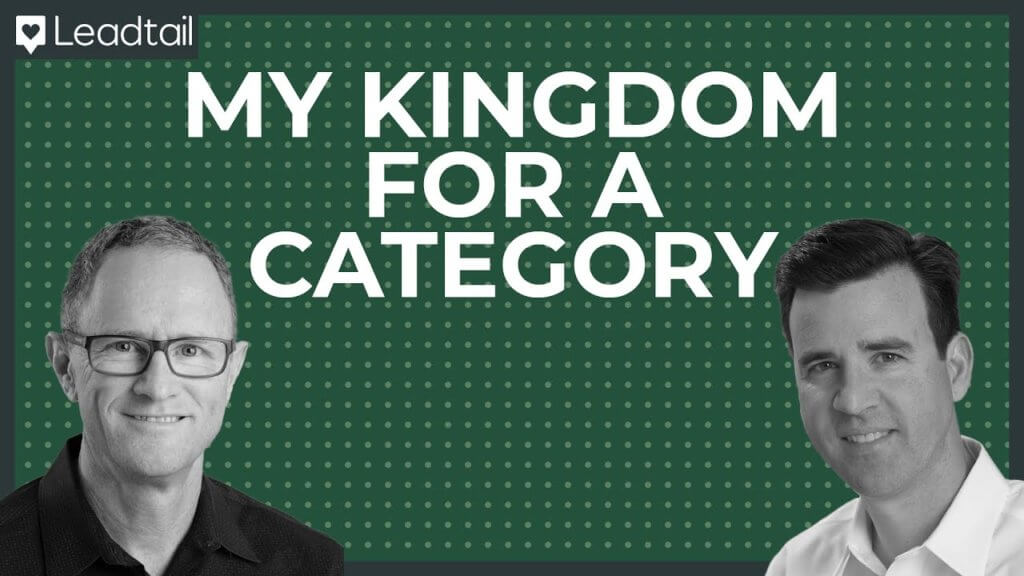Mark Twain once said, “There is no such thing as an original idea. It’s impossible.”
Originality is dead.
Been there, done that.
That doesn’t stop brands from brainstorming, formulating, and conceiving brand-spanking-new market categories like mad alchemists in a lab.
Sometimes category creation works. (Like when Salesforce created cloud-based CRM or Marketo with marketing automation.) Sometimes it doesn’t. (Everything you’ve never heard of.)
Who benefits from category creation, really? Customers? Marketers? CEOs? Or is it just an excuse for a startup to drive a high valuation? In this edition of “CounterPoint B2B,” Steve Mann deep dives into this hot-potato topic with marketing leaders Clark Newby and Mark Herring.
Is Category Creation a Good Growth Strategy for B2B?
Brands want to differentiate themselves in ever-competitive markets, so CEOs love category creation — coming up with a new category that they can be the leaders of.
So is category creation a good growth strategy?
Clark Newby, Interim CMO at health navigation platform Castlight Health, thinks so.
He says category creation is core to an organization’s long-term strategy, and a good category — a “category king or queen” — can take up to 70-80 percent of the profits of an industry’s market value.
Take Uber, which invented the category of “digital ride-hailing” and now comprises an eye-watering 68 percent of the ridesharing industry in the United States alone. That’s one company dominating over two-thirds of a multi-billion-dollar market.
“You can back away from the ledge of category creation if you want,” says Newby. “But if you do, you’re just leaving the whole market for all the hang gliders that are going to go after it.”
Growth leader Mark Herring isn’t so sure. He says category creation success depends on the intention behind it, and no brand should category-create just for the sake of it:
“As a marketer, you’ve got to be aware of an investor’s desire to create categories because it brings bigger valuations and juggle that with what the market actually demands,” says Herring.
“If you create this fancy new category that nobody wants, that’s a waste. Marketers have got to walk the tightrope.”
Who Benefits From Category Creation?
Category creation requires a sizeable element of risk. Brands need to create a brand new idea from scratch, and that can cost hundreds of thousands, perhaps millions, of dollars. The pay-off can be worth that investment — see Salesforce and Marketo — but, sometimes, creation is just an excuse for a company to drive a high valuation.
Ultimately, category creation should be a team effort, where a brand identifies a gap in the marketplace and creates a product with purpose.
“The category should be baked into the company’s vision and mission,” says Newby.
Final Word
Category creation seems like the hottest thing in B2B right now, with marketers frantically trying to create something original and become the next Salesforce.
While category creation can certainly prove lucrative, brands should determine whether it’s worth the investment or explore other strategies instead.
Learn more about category creation and whether it’s a good idea for B2B marketing here.
Want to have a conversation about social media? Let’s talk.
